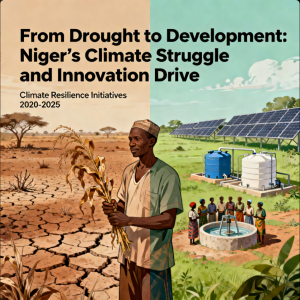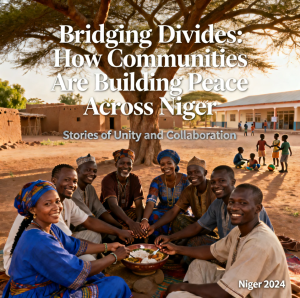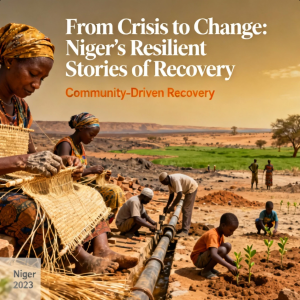Niger stands at a turning point. Often described through the lens of its challenges, the country is now pushing forward with a wave of infrastructure projects designed to connect regions, support trade, and power a more resilient future. These projects are more than steel, roads, and wires. They are pathways to mobility, opportunity, and regional influence.
Here’s what’s shaping the Niger of tomorrow.
🛣️ 1. Expanding the National Road Network
Road connectivity remains the backbone of Niger’s development strategy. With vast distances and landlocked geography, improving transport links is essential.
Major projects include:
- Niamey–Dosso–Gaya Corridor Upgrades
This key route strengthens access to Benin’s port of Cotonou, reducing transport delays and boosting trade efficiency. - Zinder–Agadez Modernization
Enhances mobility for northern communities and supports mining activities in the Aïr region. - Rural Access Road Programs
These smaller projects carry massive impact, connecting remote villages to markets, clinics, and schools.
New roads don’t just move vehicles. They shift entire communities closer to economic participation.
⚡ 2. Energy Projects Powering a New Era
Niger is investing heavily in energy to meet rising demand and reduce reliance on imports.
Key initiatives lighting the way:
- Kandadji Dam Project
A long-term hydroelectric and irrigation project that aims to improve energy security while boosting agriculture along the Niger River. - Solar Power Expansion
From the Malbaza solar plant to new photovoltaic sites near Agadez and Niamey, solar is becoming a cornerstone of rural and urban energy access. - Regional Grid Interconnectors
These projects improve reliability and integrate Niger more deeply into West Africa’s power network.
Energy access is shifting from scarcity to sustainability, creating space for industries, hospitals, and digital services to thrive.
📡 3. Digital Infrastructure: Connecting a New Generation
The digital landscape in Niger is evolving fast, opening doors for education, business, and innovation.
Projects shaping the shift include:
- 4G and Fiber-Optic Expansion
Telecom companies and public initiatives are rapidly spreading high-speed connectivity across urban centers and secondary towns. - Digital Literacy Programs
NGOs and government partners are training youth and entrepreneurs for the modern digital economy. - E-Government Platforms
New systems for civil registration, taxation, and public services reduce barriers and increase transparency.
Connectivity is becoming a bridge between rural realities and global opportunities.
🚆 4. Boosting Trade Through Regional Corridors
Niger’s strategic location makes it a crucial link in West African commerce. Major infrastructure investments aim to strengthen that position.
Important routes include:
- Kano–Maradi Railway Project
A transformative cross-border rail line connecting Niger to northern Nigeria’s industrial hubs.
Expected benefits: faster freight movement, job creation, and smoother cross-border trade. - Trans-Saharan Highway Enhancements
Reinforcing Niger’s role in connecting North Africa, West Africa, and the Sahel.
These corridors turn Niger into a regional gateway rather than a detour.
🏙️ 5. Urban Renewal and Resilient City Planning
Cities like Niamey are undergoing a quiet transformation.
Urban projects include:
- Bridge expansions over the Niger River
Reducing congestion and strengthening transport links within the capital. - Drainage and flood-control systems
Essential for resilience as climate patterns intensify. - Affordable housing and new municipal zones
Supporting rapid population growth and urban planning.
Urban development is crafting cities built for stability rather than struggle.
🌱 6. Infrastructure with Sustainability in Mind
Modern projects in Niger increasingly integrate sustainability:
- Water management systems
- Reforestation initiatives linked to construction zones
- Low-impact energy solutions
- Environmental impact monitoring
The message is clear: development and sustainability don’t have to compete.
✅ Conclusion
Niger’s infrastructure projects are more than engineering feats. They represent a shift toward mobility, energy independence, digital inclusion, and regional relevance. The road ahead is long, but it’s being built with intention, resilience, and a vision for a stronger tomorrow.
Whether through highways cutting across the Sahel or fiber cables stitching communities together, Niger’s future is being constructed piece by piece — and each project brings the country closer to the possibilities it deserves.




